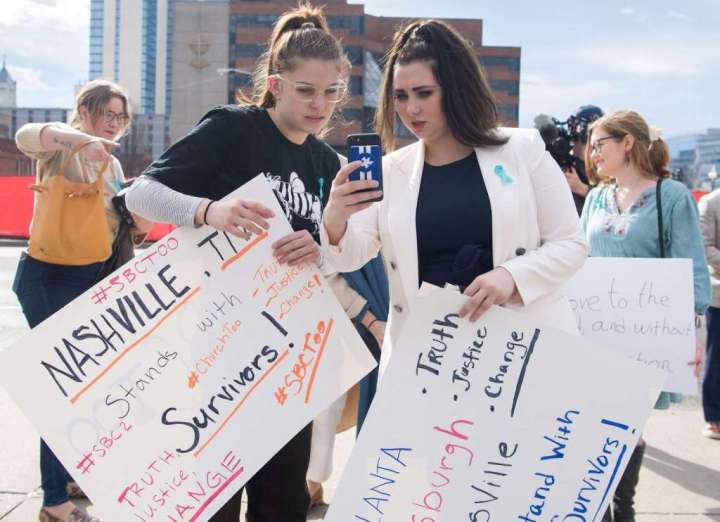In nearly 300 pages, a third-party investigator has produced the Warren Commission report, the 9/11 Commission report, of Southern Baptist Christianity. And the scale of malfeasance is truly shocking.
The report on Southern Baptist abuses is a portrait of brutal misogyny

Survivors’ calls and emails, the report asserts, were “met, time and time again, with resistance, stonewalling, and even outright hostility.” When victims organized to draw attention to their suffering, some church officials treated them as instruments of Satan, intent on distracting the church from its real mission of evangelism.
The report depicts the abuses in Technicolor detail. Consider a meeting between one survivor, Christa Brown, and the Southern Baptist Convention’s bylaws work group. “Some opposed her even being allowed to speak,” the report states, and an Executive Committee member “turned his back to her during her speech and another chortled.”
Is it possible to imagine a more cartoonish version of misogynist evil than a male ecclesiastical leader chortling in response to an abused woman’s story?
The main responses of the SBC, described in the report, have been to minimize allegations and undermine victims. Some Executive Committee members have referred to survivors as “Potiphar’s wife” — a biblical character who makes a false accusation of rape.
In 2007, Frank Page, the SBC’s president at the time, wrote: “Please be aware that there are groups that are nothing more than opportunistic persons who are seeking to raise opportunities for personal gain.” In a 2008 email, Paige Patterson, a former SBC president who at the time served as president of the Southwestern Baptist Theological Seminary, referred to one survivors’ group as “just as reprehensible as sex criminals.” In 2018, the report reminds us, “Dr. Patterson was fired by SWBTS after he was accused of telling a student not to report a rape in 2003 and, in 2015, of emailing his intention to meet with another student who had reported an assault, with no other officials present, so he could ‘break her down.’”
This is not Christianity. It is a culture of brutal chauvinism that has grown up for generations around Christianity. When it comes to protecting abusers, the largest American Protestant denomination is in the same vile category as the Catholic Church. An utter failure to prioritize abused women and children is the largest crisis of institutional religion in the United States.
The Southern Baptist Convention must have realized it was dealing with highly explosive information. For years, it denied keeping a list of abusers. That turned out to be a lie. By August 2018, staff at the Executive Committee had a file of 585 possible abusers. But the purpose of that internal list was institutional self-protection from lawsuits.
There is a warning here for any organization — what might be called the irony of institutional identity. When the primary mission of an institution is to defend itself, it is at grave risk of losing itself. Self-serving moral compromises come easier and easier. The Nixon White House believed that saving the United States required saving its administration through increasingly bold criminality. The Catholic Church believed that its holy mission required the burial of grave crimes against the innocent.
“Their main concern,” the report says of the SBC’s leaders, “was avoiding any potential liability for the SBC.” Consider that for a moment. Their main concern was not women and children who were violated by sexual predators. It was the limitation of their legal exposure. What does that say about the content and quality of their beliefs?
There is also a warning here specifically to Christian institutions. When pastors believe that the importance of their mission — reaching the lost, spreading the Gospel — somehow justifies the concealment of terrible crimes, they have crossed the line into heresy. The Christian message can never be advanced through strategic lies. Deception is its magnetic opposite. Often these justifications of sin in the cause of salvation are not really attempts to protect an institution from harm; they are attempts to protect the elites who run an institution from exposure.
Former SBC official Russell Moore calls the revelations in the report “evil and systemic.” Those who deny the possibility that evil can be systemic must read this damning document.
Men who intimidate victims, cover up cruelty and blame survivors for their own abuse have shaped the values and ethos of a major Christian institution. This is much more than religious hypocrisy. It is the sign of a church that has lost its first love.






